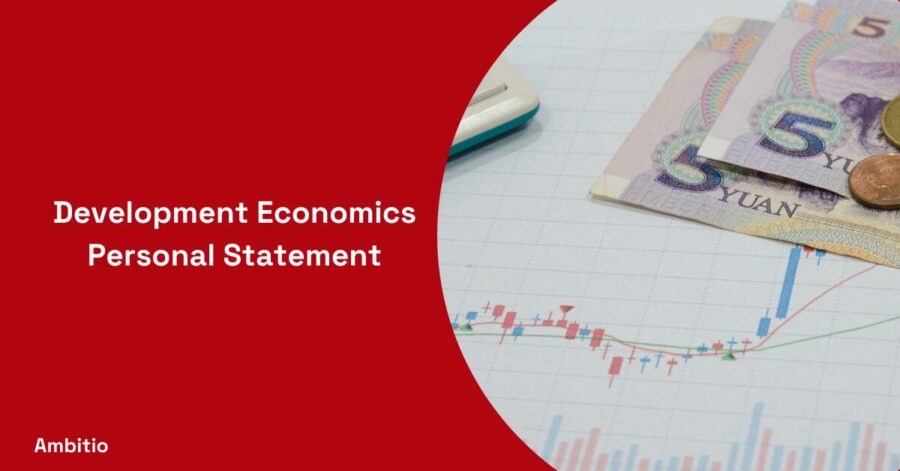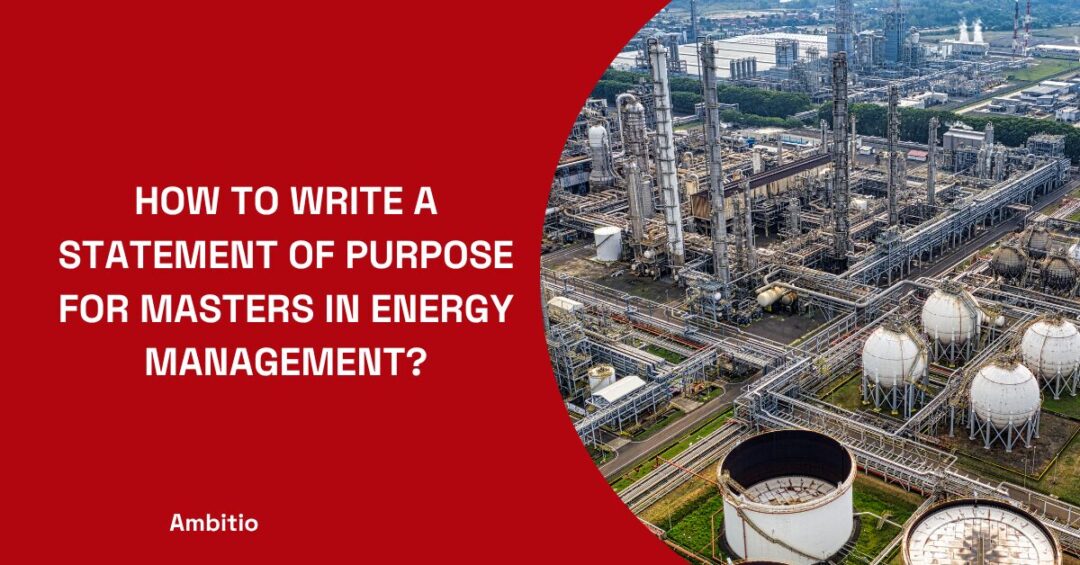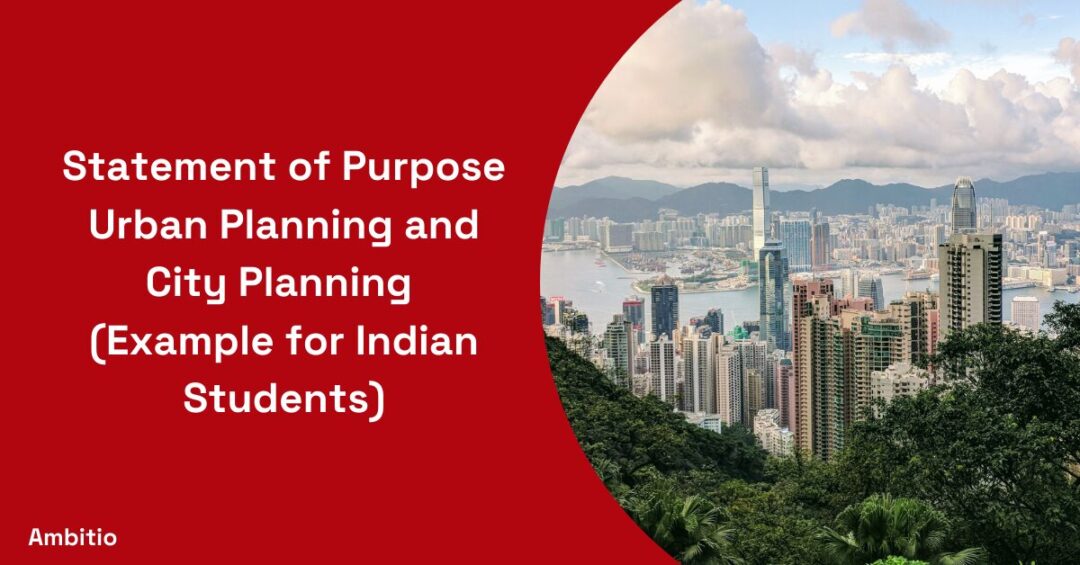11 December 2024
5 minutes read
Navigating the Path to a Future in Development Economics: Crafting Your Statement

Crafting an Economics Personal Statement: Your Gateway to Development Economics Mastery
The journey to a rewarding career in development economics begins with a powerful personal statement. As a prospective economics master’s student, your statement is not just a formality; it’s a chance to showcase your passion for economics and your understanding of its role in international development.
Whether you’re applying through UCAS or directly to your dream university, this blog will guide you on how to write a good personal statement that resonates with admissions committees.
Unearthing Your Passion for Economics
Reflecting on Your Journey to Economics
Your personal statement should start with a reflection on your journey to choosing economics. Perhaps a particular event or class sparked your interest.
Detail how your A-level studies or extracurricular activities have shaped your understanding of economics. This could include participating in economics clubs, attending seminars, or engaging in discussions about global economic issues.
This section should resonate with your genuine interest and curiosity in the subject, setting the tone for your commitment to the field.
Connecting Economics to Real-World Issues
In this section, delve into how your interest in economics is tied to real-world problems. Discuss how understanding economic principles can lead to solutions for global challenges like poverty, inequality, or climate change.
This is your chance to show that your passion for economics is not just academic but also deeply connected to your concern for global issues.
Share any relevant experiences, such as volunteer work or projects, that demonstrate your commitment to using economics as a tool for positive change.
Academic and Professional Experiences in Economics
Highlighting Academic Achievements
Here, you should outline your academic journey in economics. Mention significant milestones, such as relevant coursework, academic achievements, and any economics-related research you might have conducted.
If you’ve participated in economics competitions or published any papers, make sure to include these as well. This section should reflect a strong foundation in economics, showcasing your preparedness for higher studies in the field.
Professional Experiences and Their Impact
If you have professional experience in economics or related fields, describe how these experiences have enriched your understanding of economics.
Perhaps you had an internship at a financial institution, a non-profit organization, or a government agency dealing with economic policies.
Explain how these experiences provided you with a practical understanding of economic concepts and their applications, and how they have influenced your decision to pursue further studies in economics.
Future Aspirations in Development Economics
Articulating Your Career Goals
In this segment, articulate your future career goals and how a master’s in economics will help you achieve them. Be specific about the areas of economics you wish to explore and the type of roles you envision yourself in post-graduation.
This could include ambitions to work in international organizations, government agencies, or the private sector, focusing on economic development. Linking your career goals to your personal values and interests in economics will create a compelling narrative for your aspirations.
The Role of the Economics Masters Program
Discuss the specific aspects of the economics masters program that attract you. Highlight particular modules, teaching methodologies, or research opportunities that align with your interests.
Explain how these program features will aid in your academic and professional development. This is also an opportunity to demonstrate your understanding of the university’s approach to economics and how it aligns with your learning style and career objectives.
Personalizing Your Economics Statement
Crafting a Unique Personal Narrative
Your personal statement should not only reflect your academic and professional experiences but also your unique personal journey. Share stories or experiences that have shaped your perspective on economics.
This could be travel experiences, personal challenges, or insights gained from diverse cultural exposures. A personal narrative adds depth to your statement, making it memorable and distinct.
Demonstrating Skills Beyond Academics
In this section, emphasize skills and qualities that you’ve developed outside of your academic life. Discuss leadership roles, teamwork experiences, and any extracurricular activities that highlight your soft skills.
These could include organizational skills gained from managing events, communication skills honed through debate clubs, or analytical skills developed through chess or mathematics clubs. Illustrate how these skills will contribute to your success in a development economics program.
Writing and Refining Your Statement
Tips for Writing a Compelling Statement
Writing a compelling personal statement for your application in development economics can be a pivotal factor in your admission success. Here are some key tips to consider:
- Start with a Strong Opening: Your opening sentence should grab the reader’s attention. It could be a provocative question, a bold statement, or a brief anecdote that encapsulates your passion for economics.
- Be Authentic: Write in your own voice and stay true to your experiences. Authenticity resonates more than trying to fit into what you think the admissions committee wants to hear.
- Show, Don’t Just Tell: Use specific examples to illustrate your points. Instead of simply stating that you’re passionate about economics, describe an experience or project that demonstrates this passion.
- Connect Personal Experiences with Academic Interests: Relate your personal experiences, such as travel, work, or volunteer opportunities, to your interest in development economics. Explain how these experiences have shaped your perspective and fueled your academic pursuits.
- Outline Your Academic and Professional Goals: Clearly state your academic and career objectives and how the program aligns with these goals. Be specific about what you hope to achieve and how the program will help you get there.
- Highlight Relevant Skills and Achievements: Mention any relevant skills, accomplishments, or experiences that make you a strong candidate for the program. This can include research projects, internships, leadership roles, or extracurricular activities related to economics.
- Reflect on Your Journey: Discuss your journey towards choosing economics as a field of study. What motivated you, what challenges you faced, and how you overcame them can provide a compelling narrative.
- Demonstrate Your Knowledge of the Program and Institution: Show that you have done your research by mentioning specific aspects of the program or faculty that appeal to you. This demonstrates your genuine interest in the program and institution.
- Keep It Structured and Concise: Organize your statement in a clear, logical manner. Avoid unnecessary information and keep your writing concise. Adherence to word limits and guidelines is important.
- End with a Strong Conclusion: Your conclusion should tie back to your opening and reiterate your enthusiasm for the field of development economics. It should leave a lasting impression on the reader.
- Seek Feedback: Before finalizing your statement, get feedback from mentors, teachers, or peers. A fresh perspective can help catch errors and improve the overall flow of your statement.
- Proofread Thoroughly: Check for grammatical errors, typos, and awkward phrasing. A well-written, error-free statement reflects your attention to detail and professionalism.
Remember, your personal statement is a unique opportunity to convey your passion, experiences, and suitability for a program in development economics. Make every word count!
The Importance of Proofreading and Feedback
Stress the importance of proofreading your personal statement and seeking feedback. Discuss how attention to detail in grammar, syntax, and style can significantly impact the readability and professionalism of your statement.
Encourage seeking feedback from mentors, teachers, or peers who understand your aspirations in economics, and explain how their insights can help refine your statement.
FAQs
Q1: How important is a personal statement for an economics master’s application?
A personal statement is crucial as it provides the admissions committee with insight into your passion for economics, your academic and professional background, and your future aspirations. It’s an opportunity to stand out from other applicants.
Q2: What should I include in my economics personal statement?
Include your reasons for choosing economics, any relevant academic and professional experiences, your understanding of development issues, your future career goals, and why you’re interested in the specific program and university.
Q3: How can I make my personal statement stand out?
To make your statement stand out, personalize it with unique experiences and reflections, demonstrate a deep understanding of economics and its real-world applications, and clearly articulate your career aspirations and how the program will help you achieve them.
Q4: How long should my personal statement be?
The length can vary depending on the university’s requirements, but typically, it should be around one page or 500-1000 words.
Q5: Should I mention extracurricular activities in my personal statement?
Yes, mention extracurricular activities, especially those related to economics or that have helped develop skills relevant to the field, such as analytical thinking or leadership.

You can study at top universities worldwide!
Get expert tips and tricks to get into top universities with a free expert session.
Book Your Free 30-Minute Session Now! Book a call now




























